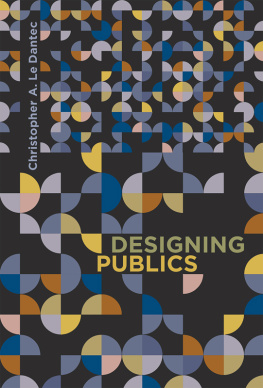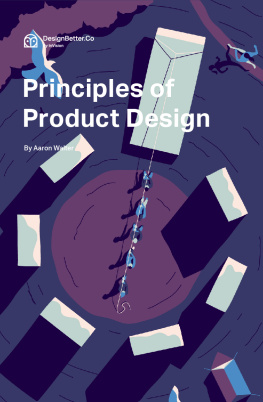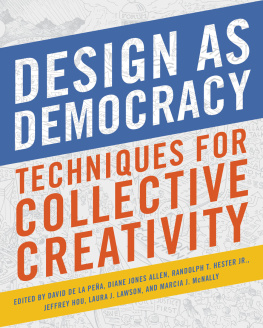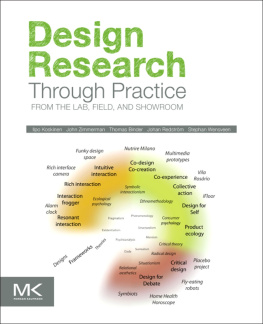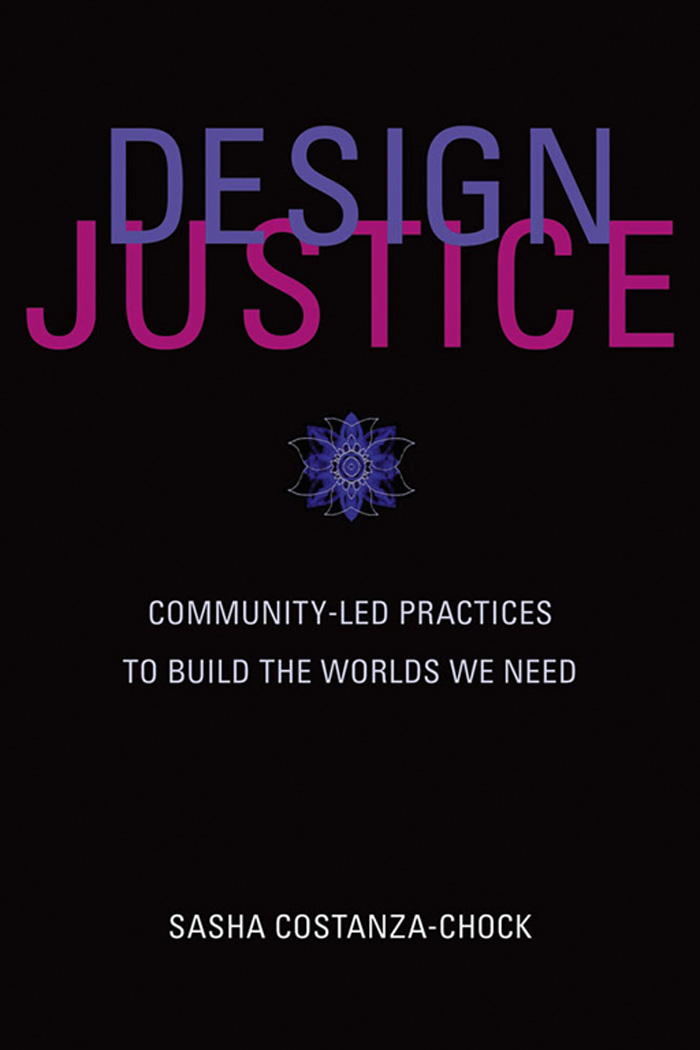
Design Justice
Information Policy Series
Edited by Sandra Braman
The Information Policy Series publishes research on and analysis of significant problems in the field of information policy, including decisions and practices that enable or constrain information, communication, and culture irrespective of the legal siloes in which they have traditionally been located, as well as state-law-society interactions. Defining information policy as all laws, regulations, and decision-making principles that affect any form of information creation, processing, flows, and use, the series includes attention to the formal decisions, decision-making processes, and entities of government; the formal and informal decisions, decision-making processes, and entities of private and public sector agents capable of constitutive effects on the nature of society; and the cultural habits and predispositions of governmentality that support and sustain government and governance. The parametric functions of information policy at the boundaries of social, informational, and technological systems are of global importance because they provide the context for all communications, interactions, and social processes.
Virtual Economies: Design and Analysis, Vili Lehdonvirta and Edward Castronova
Traversing Digital Babel: Information, e-Government, and Exchange, Alon Peled
Chasing the Tape: Information Law and Policy in Capital Markets, Onnig H. Dombalagian
Regulating the Cloud: Policy for Computing Infrastructure, edited by Christopher S. Yoo and Jean-Franois Blanchette
Privacy on the Ground: Driving Corporate Behavior in the United States and Europe, Kenneth A. Bamberger and Deirdre K. Mulligan
How Not to Network a Nation: The Uneasy History of the Soviet Internet, Benjamin Peters
Hate Spin: The Manufacture of Religious Offense and Its Threat to Democracy, Cherian George
Big Data Is Not a Monolith, edited by Cassidy R. Sugimoto, Hamid R. Ekbia, and Michael Mattioli
Decoding the Social World: Data Science and the Unintended Consequences of Communication, Sandra Gonzlez-Bailn
Open Space: The Global Effort for Open Access to Environmental Satellite Data, Mariel John Borowitz
Youll See This Message When It Is Too Late: The Legal and Economic Aftermath of Cybersecurity Breaches, Josephine Wolff
The Blockchain and the New Architecture of Trust, Kevin Werbach
Digital Lifeline? ICTs for Refugees and Displaced Persons, edited by Carleen F. Maitland
Designing an Internet, David D. Clark
Reluctant Power: Networks, Corporations, and the Struggle for Global Governance in the Early 20th Century, Rita Zajcz
Human Rights in the Age of Platforms, edited by Rikke Frank Jrgensen
The Paradoxes of Network Neutralities, Russell Newman
Zoning China: Online Video, Popular Culture, and the State, Luzhou Li
Design Justice: Community-Led Practices to Build the Worlds We Need, Sasha Costanza-Chock
Design Justice
Community-Led Practices to Build the Worlds We Need
Sasha Costanza-Chock
The MIT Press
Cambridge, Massachusetts
London, England
2020 Sasha Costanza-Chock
This work is subject to a Creative Commons CC-BY-NC-ND license.

Subject to such license, all rights are reserved.
This book was set in ITC Stone Serif Std and ITC Stone Sans Std by Toppan Best-set Premedia Limited.
Library of Congress Cataloging-in-Publication Data
Names: Costanza-Chock, Sasha, 1976- author.
Title: Design justice : community-led practices to build the worlds we need /
Sasha Costanza-Chock.
Description: Cambridge, MA : The MIT Press, 2020. | Series: Information
policy | Includes bibliographical references and index.
Identifiers: LCCN 2019015279 | ISBN 9780262043458 (hardcover : alk. paper)
Subjects: LCSH: Design--Social aspects. | Social justice.
Classification: LCC NK1520 .C675 2020 | DDC 745.4--dc23 LC record available at https://lccn.loc.gov/2019015279
10 9 8 7 6 5 4 3 2 1
For Allied Media Projects, a collaborative laboratory of media-based organizing whose transformative impacts will ripple outward for generations.
For Mother Cyborg and the Detroit Community Technology Project, visionaries of digital stewardship, DiscoTechs, and building the worlds we need.
For two-spirit people, who survived centuries of settler colonialism and are still here, reclaiming their rightful places beside the council fires.
d_r0
Contents
Acknowledgments
This book reflects the labor of a great many people. First, there would be no design justice theory or practice as we know it without years of work from the many Design Justice Network organizers, especially Una Lee, Victoria Barnett, Wes Taylor, Carlos (L05) Garcia, Nontsikelelo Mutiti, Adrienne Gaither, Taylor Stewart, Ebony Dumas, Danielle Aubert, Victor Moore, and Gracen Brilmyer, as well as the hundreds of people who have organized and taken part in design justice workshops at the Allied Media Conference since 2016. The authors of the first version of the Design Justice Network Principles are Una Lee, Jenny Lee, Melissa Moore, Wesley Taylor, Shauen Pearce, Ginger Brooks Takahashi, Ebony Dumas, Heather Posten, Kristyn Sonnenberg, Sam Holleran, Ryan Hayes, Dan Herrle, Dawn Walker, Tina Hana Miller, Nikki Roach, Aylwin Lo, Noelle Barber, Kiwi Illafonte, Devon De Len, Ash Arder, Brooke Toczylowski, Kristina Miller, Nancy Meza, Becca Budde, Marina Csomor, Paige Reitz, Leslie Stem, Walter Wilson, Gina Reichert, and Danny Spitzberg. Nor would this book be possible without everyone from the Tech for Social Justice Project (T4SJ), the #QTPower crew, and my Allied Media fam. Diana Nucera, especially, youre a guiding light in the community technology movement: House of Cyborg forever! Thanks also to all the staff, research assistants, students, and community partners from the Collaborative Design Studio, too numerous to list here (explore https://codesign.mit.edu for more info).
Next, profound thanks to my editors at the MIT Press, Sandra Braman and Gita Devi Manaktala, as well as to Melinda Rankin, Michael Sims, and Kathy Caruso, who helped greatly improve the text. Mariel Garca-Montes, Katie Louise Arthur, and Annis Rachel Sands each spent many hours working with me on the manuscript as research assistants and deserve special recognition. Maya Wagoners thesis project greatly informed my thinking about design pedagogy. Also, the #MoreThanCode report and the T4SJ project, the findings of which are woven throughout this book, would never have happened without the work of Maya and Berhan Taye to plan, facilitate, and conduct interviews with key practitioners across the country. That project was also built through the hard work of Caroline Rivas and Chris Schweidler. Chris, thank you for all that you do to advance participatory action research. Sky House continues to be a sanctuary.
Special thanks to readers of early, often painfully dense draft chapters, especially Lilly Irani, Ruha Benjamin, Lisa Parks, Catherine DIgnazio, Una Lee, and Alessandra Renzi. Justin Reich and Eric Klopfer provided invaluable comments on design pedagogy, and Cathy Hannabach and Summer McDonald at Ideas on Fire gave thoughtful early suggestions on the first chapter. Laura Forlano and all the organizers of the design feminisms track at Design Research Society 2018 created a space where I was able to openly discuss and further develop many of this books themes. Lisha Nadkarni responded to the earliest draft of the book proposal with key suggestions. Casey Thoreson created the index.
Next page


